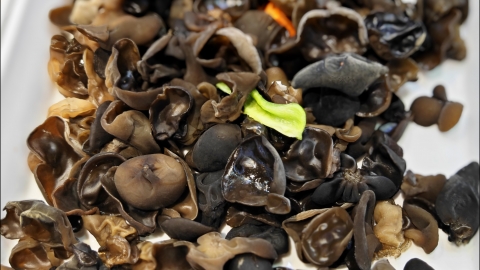Can black fungus and onion be eaten together?
Generally speaking, wood ear fungus and onions can be eaten together. Details are as follows:

Wood ear fungus is rich in protein, iron, calcium, vitamins, and crude fiber, especially high in iron content, making it an excellent food for treating anemia. Onions contain various plant compounds beneficial to human health, such as anthocyanins and quercetin. From the perspective of their composition, eating them together typically does not cause harmful chemical reactions. Combining these two foods can provide the body with abundant nutrients.
Both wood ear fungus and onions are relatively difficult to digest, especially when consumed raw or not fully cooked. For individuals with weak gastrointestinal function or digestive system diseases such as gastritis or gastric ulcers, eating them together may increase the burden on the gastrointestinal tract, causing symptoms such as bloating and diarrhea. Some individuals may be allergic to components in wood ear fungus or onions, and in such cases, it is not recommended to consume them together to avoid allergic reactions.
In daily diets, balanced intake of various foods and maintaining a reasonable dietary structure are key to maintaining health.








